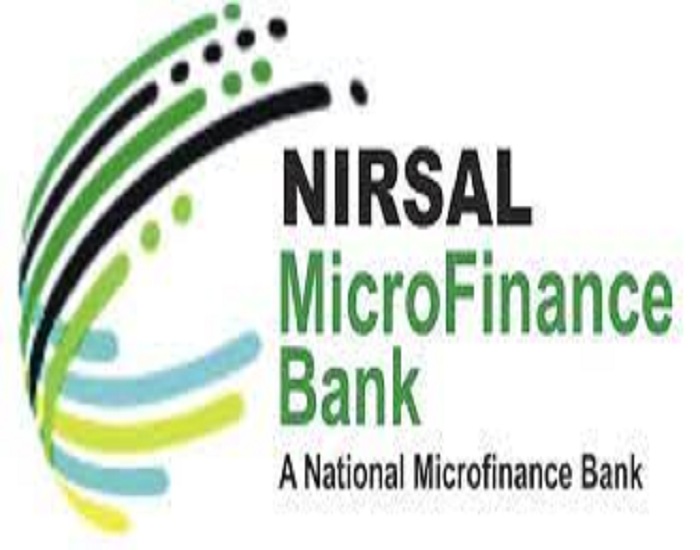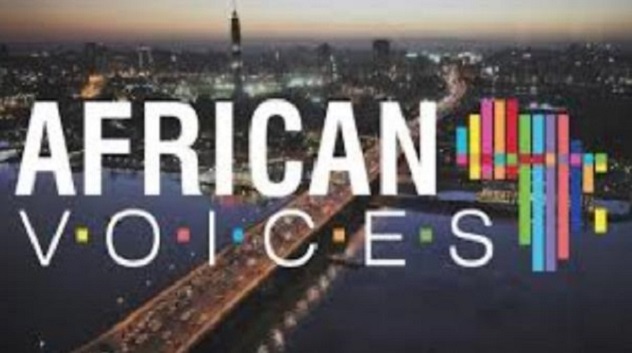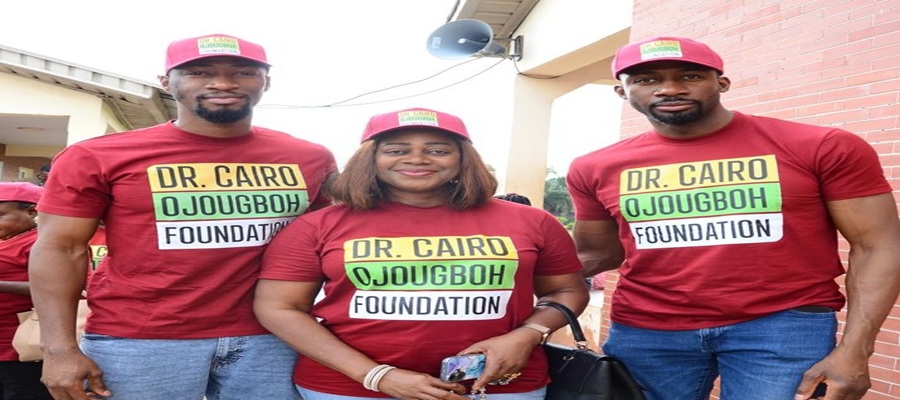Broadcasting
DFA Applauds CBN’s Oversight Functions on NIRSAL’s Operations

The Development Finance Advocates (DFA), a network of individuals who believe and support the adoption of development finance strategy in growing the Nigerian economy has commended the Central Bank of Nigeria (CBN) for effectively performing its statutory oversight functions on the activities of Nigeria Incentive-Based Risk Sharing for Agricultural Lending (NIRSAL Microfinance Bank) as regards the disbursement of funds meant to catalyse the flow of finance and investment into fixed agricultural value chains.

The CBN, through its Development Finance Department (DFD), has undertaken several financial intervention initiatives over the years, covering some major strategic sectors of the economy.
These interventions include 37 development finance initiatives, across critical sectors of the economy namely; Agriculture, Aviation, Creatives, Export, Health, Information Technology, Manufacturing, MSMEs, and Power.
In the wake of the COVID-19 pandemic last year, the CBN introduced the Targeted Credit Facility (TCF) through NIRSAL Microfinance Bank.
This is aimed at cushioning the impact of the pandemic on businesses and households. The TCF is a N50billion stimulus package designed to support households, Micro, Small and Medium Enterprises (MSMEs) affected by the COVID-19 pandemic.
To accommodate more beneficiaries, an additional N50 billion has been added making it a total of N100 billion.
Also notable is the Agric Small and Medium Enterprise Scheme (AGSMEIS) which was introduced in 2017 by the Bankers’ Committee in a bid to support and complement the Federal Government’s efforts at promoting Agri-businesses/Small and Medium Enterprises as a vehicle for sustainable economic development and employment generation. So far, this initiative has been impactful with testimonials from beneficiaries.
Commending the apex bank for ensuring transparency of the process, Mrs. Bolaji Oyekanmi, executive director, Development Finance Advocates (DFA), said: “The CBN has clearly demonstrated that it is totally committed to funding developmental projects to drive economic growth in the country.
“It has been consistent in ensuring that these initiatives, not only succeed but achieve the set objectives of impacting the lives of individuals and businesses.”
Oyekanmi further stated, “it is quite reassuring for us, as we continue to monitor the implementation of these initiatives across board.
“We have been following developments as its concerns NIRSAL Microfinance Bank and other partnering banks under the supervision of the CBN in adhering to strict compliance governing the disbursement of the funds. The way and manner this has been done so far is worthy of commendation.”
She further stated that, in situations where infractions were reported, the CBN, has been effective in using the instrumentality of its mechanism, to swiftly investigate and resolve issues, thereby sustaining stakeholder’s confidence in the initiatives.
Broadcasting
Pheelz Shares His Journey on Glo-Sponsored African Voices

Nigerian singer, songwriter and producer Pheelz (Phillips Kayode Moses) is set to feature this weekend on African Voices Changemakers, the flagship magazine programme on CNN International.

The 30-minute episode, sponsored by digital solutions company Globacom, premieres on Saturday, February 21, 2026. In a candid sit-down with host Larry Madowo, Pheelz opens up about his journey from church musician to global hitmaker, reflecting on the intersections of faith, fame and the expanding influence of Afrobeats on the world stage.
Now 31, Pheelz began his musical path as a multi-instrumentalist in church before earning widespread acclaim in 2012 as the producer behind the hit tracks “First of All” and “Fucking with the Devil” on Olamide’s YBNL album. His rapid rise saw him named among NotJustOk’s Top 10 Hottest Producers in Nigeria in 2013.
He further solidified his reputation by producing nearly every track on Olamide’s Baddest Guy Ever Liveth, earning nominations at The Headies 2013 and in the Producer of the Year category at both The Headies 2014 and the Nigeria Entertainment Awards. In 2020, he clinched The Headies Producer of the Year award, and in 2021 secured the Soundcity MVP Award for Best Collaboration for “Finesse,” his smash hit with Bnxn (formerly Buju).
On the programme, Pheelz reflects on the experiences that shaped his sound and creative philosophy, discusses landmark collaborations, shares his perspective on artificial intelligence and artistry, and explains why sound, storytelling and culture remain central to African music’s global resonance.
The show airs on DSTV Channel 401 at 8:30 a.m. (WAT) on Saturday, with repeat broadcasts at 12:00 noon the same day; Sunday at 4:30 a.m. and 7:00 p.m.; Monday at 4:00 a.m. and 6:45 p.m.; and Tuesday at 6:45 p.m. The broadcast schedule continues through Monday of the following week.
Broadcasting
Dr. Cairo Ojougboh Foundation Bolsters Nigeria’s Education Drive with ₦2.7m Student Support

Dr. Cairo Ojougboh Foundation has reinforced government’s educational development efforts in Nigeria through a targeted initiative honouring the late medical doctor and House of Representatives member, Dr. Cairo Ojougboh.

L-R: Son of the late Dr, Cairo Ojougboh, Mr. Nkem Ojougboh; Chairperson, Dr. Cairo Ojougboh Foundation, Mrs. Bose Ojougboh and another son, Mr. Orieka Ojougboh, during the event in Agbor, Delta State recently.
The foundation recently hosted a programme themed “Your Future, Your Choice” at St. Columba’s Grammar School in Agbor, headquarters of Ika South Local Government Area, Delta State.
It presented a cheque of ₦2,700,000 to cover examination fees for students preparing for West African Examinations Council (WAEC), National Examinations Council (NECO), and Junior Secondary School (JSS) 3 exams.
Academic excellence received further boosts with cash rewards for top students across the school’s nine academic arms, alongside distributions of notebooks and writing materials to enhance learning.
Chairperson Mrs. Bose Ojougboh, joined by her sons Mr. Nkem and Mr. Orieka Ojougboh, urged students to view challenges as stepping stones, embrace discipline, consistency, and focus, and make intentional choices shaping their futures.
“The school that moulded Dr. Cairo’s values deserves our support,” she said, highlighting the foundation’s commitment to inspiring hard work and personal growth.
Old Boys of St. Columba’s Grammar School, led by Elder Ndudi Agholor, attended in force, sharing nostalgic reflections and praising the school’s sustained high standards under current leadership.
School Principal Rev. Fr. Joseph Ugboh and Ika South LGA Chairman Engr. Jerry Ehiwarior lauded the initiative as “commendable and impactful,” calling for its continuation to preserve Dr. Ojougboh’s legacy of discipline, excellence, and service.
They noted the support had motivated students to pursue their goals with renewed determination, ending the event on a hopeful note.
Broadcasting
New Horizons Nigeria Breaks Ground: First to Fuse Mandarin into ICT Curriculum

In a landmark educational innovation, New Horizons Nigeria has become the first institution to integrate the Chinese (Mandarin) language into its ICT curricular as an elective, thereby positioning Nigerian students for relevance in the rapidly changing world order.

Mr. Tim Akano, Managing Director and CEO of New Horizons Systems Solutions Limited
New Horizons Nigeria is a leading ICT training and solutions provider committed to provide individuals and institutions with future-ready skills. Through innovative program, global partnerships, and strategic foresight, the organization continues to redefine education, workforce development, and global competitiveness.
With over 80% of global consumer products manufactured in China and China’s growing dominance in global supply chains and labour markets, New Horizons Nigeria recognizes the urgent need for the current generation to understand, speak, and engage with the Chinese language and culture. As global economic power dynamics evolve, the labour market is increasingly tilting towards China, making Mandarin proficiency a critical competitive advantage.
According to Mr. Tim Akano, Managing Director and CEO of New Horizons Systems Solutions Limited, Nigeria, the program represents far more than a language course.
He asserted that very soon, the global labour market is likely to increasingly reflect China’s influence rather than the predominantly western orientation it currently exhibits. Language will be a major differentiator and the first Chinese-speaking technology experts in Nigeria will have a significant advantage, especially in integration into Chinese companies operating locally and globally.
Therefore, New Horizons Nigeria has officially launched a Mandarin Scholarship Program with China Advancement Opportunity, selecting 100 outstanding students from five prominent Nigerian secondary schools. This initiative marks a major milestone in Nigeria–China educational cooperation and reflects a forward-thinking response to shifting global economic realities.
Furthermore, the scholarship program has commenced with an intensive three-month online Mandarin training and at the end of the program, the top-performing students will be selected strictly on merit. 20 outstanding students will receive an additional scholarship valued at $2,500 per students to participate in a one-year pre-degree Mandarin and cultural immersion program in China. From this group, the best candidates will progress to fully funded admission scholarships into top universities in China. This initiative is designed not only to build language proficiency but also to enhance global competence, international exposure, and cultural intelligence among Nigerian students.
Also, to maintain international academic standards, participating schools are required to comply with strict guidelines. They will be obligated to join the online classes ten minutes earlier, they must have a minimum of 85% attendance throughout the program, and must ensure they have a stable internet connectivity, reliable power supply and a conducive learning environment.
Therefore, School owners and administrators have been formally congratulated and strongly encouraged to nominate their most disciplined, and committed students, as advancement to the China program will be strictly merit-based.
However, apart from students, internation business men are equally encouraged to attend New Horizon’s Mandarin executive lessons which will equip them with basic Chinese language to enhance their business communications.
Additionally, while the pilot phase begins with selected secondary schools which includes Startrite School, Lightway School, British Nigerian Academy School, Honeyland Schools and Great Heights School, the Mandarin program will be available as an elective ICT course at all New Horizons retail centers.
This is done to extend access to students and learners beyond its partner schools and within one year, committed learners will be able to communicate effectively in Mandarin, which will open doors to global employment, trade, and cultural exchange.
In conclusion, a Mandarin Cultural Fiesta will be hosted, bringing together educators, students, institutional partners, and distinguished guests from China and Nigeria. The event will celebrate outstanding performance, cross-cultural exchange, and the strengthening of bilateral educational ties.
For enquiries and participation details, interested individuals are encouraged to contact New Horizons Nigeria via 08125541750

 Telecom3 days ago
Telecom3 days agoBanks, Telcos Settle Four-Year Dispute over N300Bn USSD Debt

 Telecom2 days ago
Telecom2 days agoGroup Condemns Gabon’s Social Media Shutdown Amid Protests

 General News2 days ago
General News2 days agoHow JustMarkets Is Empowering African Traders with Global Market Access

 E-Financial3 days ago
E-Financial3 days agoACAMB Educates Content Creator to Curb Misinformation on Bank Recapitalisation

 General News3 days ago
General News3 days agoPalmPay Unveils First Batch of Winners in #LoveWithPalmPay Campaign

 E-Business2 days ago
E-Business2 days agoMutual Benefits Assurance Settles ₦5.9bn Claims in January 2026

 Telecom2 days ago
Telecom2 days agoIXPN Positions as the Regional Internet Exchange Hub for West Africa

 Telecom2 days ago
Telecom2 days agoMenxtt NG Emerges as Nigeria’s Virtual IT Hub for Premium Devices, Solutions




















